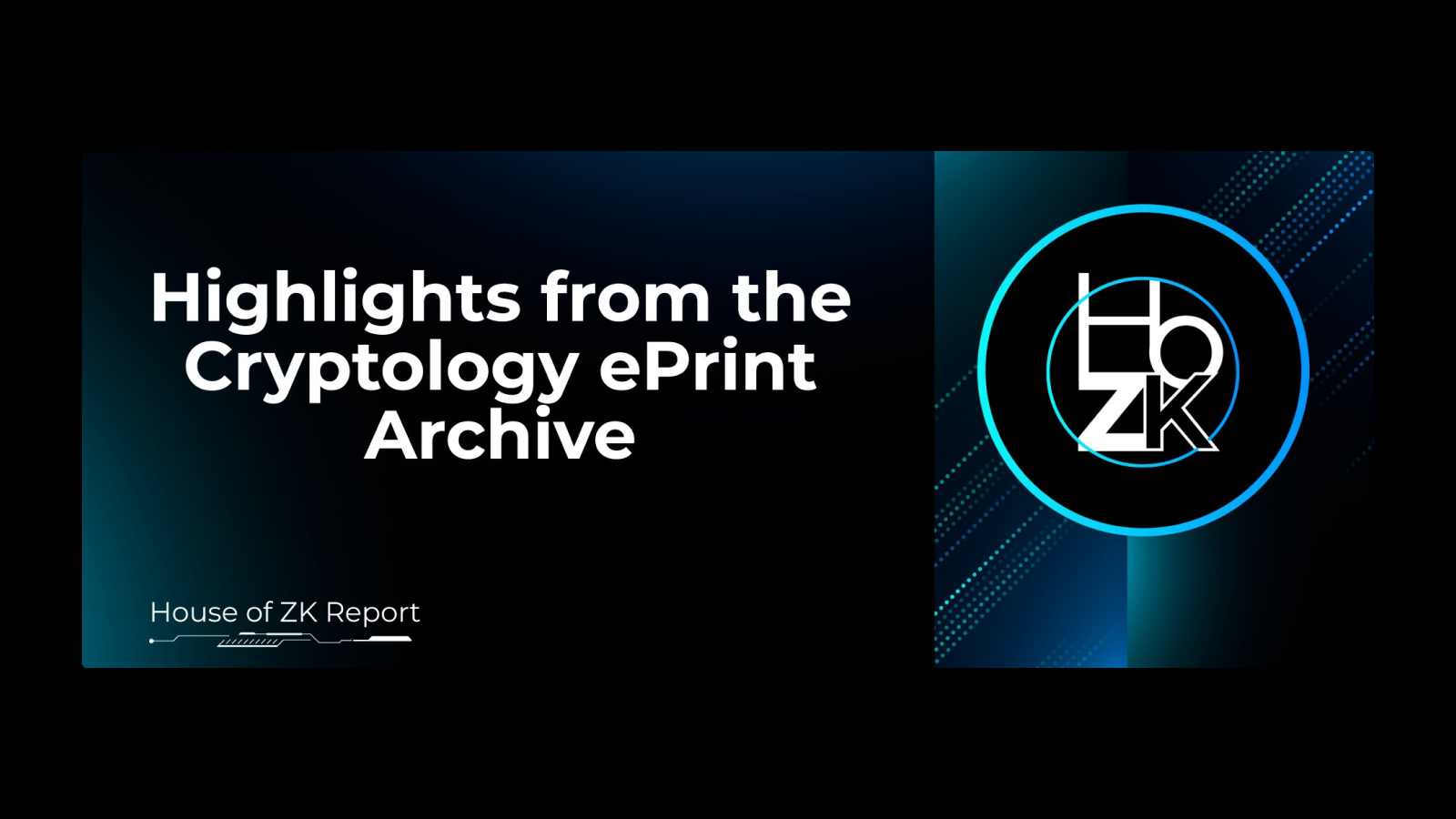
Cryptographic Personas: Responsible Pseudonyms Without De-Anonymization by Rachel Thomas, Oliwia Kempinski, Hari Kailad, Emma Margaret Shroyer, @secparam, @gkaptchuk of @UofMaryland: https://eprint.iacr.org/2025/1969
This paper introduces cryptographic personas, a method for allowing pseudonymous communication in digital communities while keeping users accountable. The system lets users post under unlinkable identities and enables moderators to revoke abusive users’ ability to post anonymously without revealing their real identities. Using zero-knowledge (ZK) proofs, proof folding, and preprocessing techniques, the authors make these operations efficient enough for real-time use, integrating their prototype into Signal to demonstrate practical deployment.
Trust, But Verify When Using the Powers of Tau by @Karim_Baghery of @KU_Leuven: https://eprint.iacr.org/2025/2000
This paper discusses the security of the “Powers of Tau” protocol used to generate trusted parameters for zkSNARK systems. It highlights risks arising when only a coordinator verifies the final Structured Reference String (SRS), showing how malicious behavior could go undetected. The author proposes that every participant or end-user should verify the final SRS to ensure reliability. The paper also introduces a faster verification algorithm using batching and aggregation, making large-scale verification more practical and secure.
VerfCNN, Optimal Complexity zkSNARK for Convolutional Neural Networks by @qu_wenjie, Yanpei Guo, Yue Ying, @jiahengzhang96 of @NUSingapore: https://eprint.iacr.org/2025/2020
This study examines a new system called VerfCNN, designed to verify convolutional neural network (CNN) computations using ZKPs. Developed by researchers at the National University of Singapore, VerfCNN introduces a protocol that proves multi-channel convolutions with optimal efficiency. Tested on VGG-16, it achieves proof generation in 12.6 seconds - over six times faster than prior systems - while maintaining low computational overhead. The approach improves trust and transparency in machine learning services without exposing proprietary model details.
Whom do you trust? PRISM: Lightweight Key Transparency for All by Sebastian Pusch, Ryan Quinn Ford and Alexander Markowetz of Philipp University of Marburg, and Joachim von zur Gathen of @UniBonn: https://eprint.iacr.org/2025/2026
This paper reveals PRISM, a new system designed to make encrypted communication more trustworthy by removing the need to rely on service providers for public key distribution. It integrates a zkVM and a blockchain data layer to let every user automatically verify key authenticity without manual checks. PRISM’s architecture enables fast, low-cost validation across millions of users, offering scalable protection against tampering and hidden access in messaging platforms.
Succinct Zero-knowledge Proofs from One-way Functions: The Blackbox Way by @ronrothblum of @SuccinctLabs, and Eden Florentz- Konopnicki of @TechnionLive: https://eprint.iacr.org/2025/2030
The paper describes a new method for constructing succinct ZKPs that rely only on one-way functions and use them as black boxes. It extends prior results by showing such proofs can be both efficient in communication and statistically sound, even against unbounded provers. The authors introduce a statistically binding polynomial commitment scheme as a core component, allowing verification with minimal overhead. Their protocol achieves negligible soundness error while maintaining low computational and communication complexity.
A Note on Notes: Towards Scalable Anonymous Payments via Evolving Nullifiers and Oblivious Synchronization by Sean Bowe and Ian Miers: https://eprint.iacr.org/2025/2031
In this paper, the authors explore how to scale anonymous payments built on ZKP systems such as Zerocash. They highlight a core limitation: validators must store an ever-growing set of “nullifiers” to prevent double spending. The paper proposes “evolving nullifiers” and “oblivious synchronization,” techniques that let validators safely prune old data while preserving strong privacy and efficiency in ZK-based payment networks.
Multivariate Commitments and Signatures with Efficient Protocols by Charles Bouillaguet, Julia Sauvage and Damien Vergnaud of Sorbonne University, @tfeneuil and @mrivain of @CryptoExperts, and Jules Maire of @ENS_ULM: https://eprint.iacr.org/2025/2035
This work highlights a new approach to post-quantum cryptography using multivariate quadratic equations over finite fields. The authors present a commitment and signature scheme that is both efficient and secure against quantum attacks. They show that the scheme is computationally hiding and binding under standard hardness assumptions and integrates seamlessly with ZKPs. Applications include privacy-preserving authentication and blind signatures with significantly smaller proof sizes than existing lattice-based constructions.
Sum-check Is All You Need: An Opinionated Survey on Fast Provers in SNARK Design by @SuccinctJT of @a16zcrypto: https://eprint.iacr.org/2025/2041
This paper presented a survey on how the sum-check protocol underlies faster and simpler SNARK and ZK systems. It shows that the most efficient provers use sum-check to reduce data commitments and computation time. The work links these methods to zkVMs such as Jolt, highlighting how batch evaluation, memory checking, and virtual polynomials make large-scale ZK proving more practical and easier to implement.
Threshold Anonymous Credentials with Silent Setup by Preshtha Garg, @SanjamGarg, @gvamsip, Bhaskar Roberts of @UCBerkeley: https://eprint.iacr.org/2025/2042
A team of researchers from UC Berkeley introduced a new system for issuing anonymous digital credentials without requiring prior coordination between authorities. Their approach combines threshold cryptography with ZKPs to let users prove the validity of their credentials without revealing issuers or personal data. The scheme, designed for decentralized environments like digital identity wallets or DAOs, supports dynamic verification policies and scales efficiently to thousands of issuers.